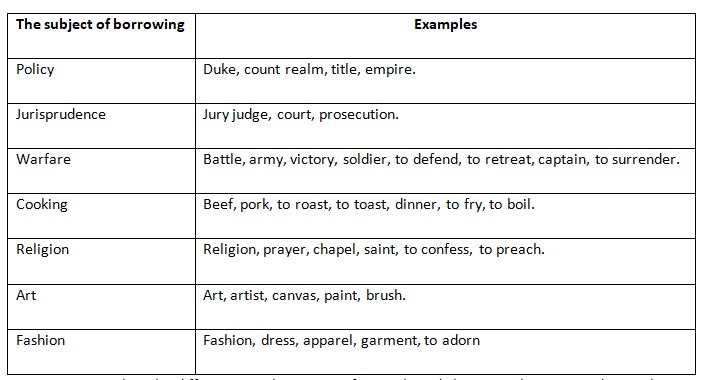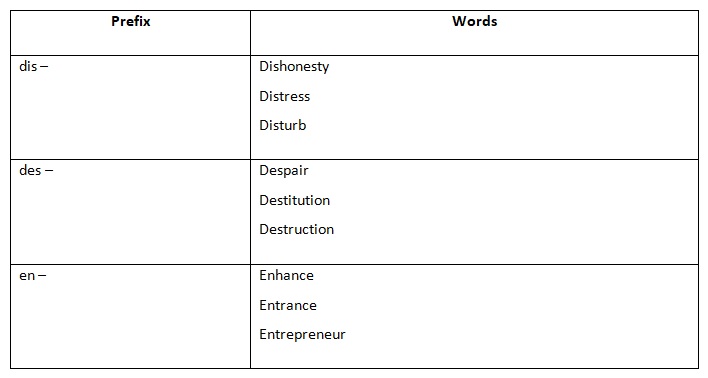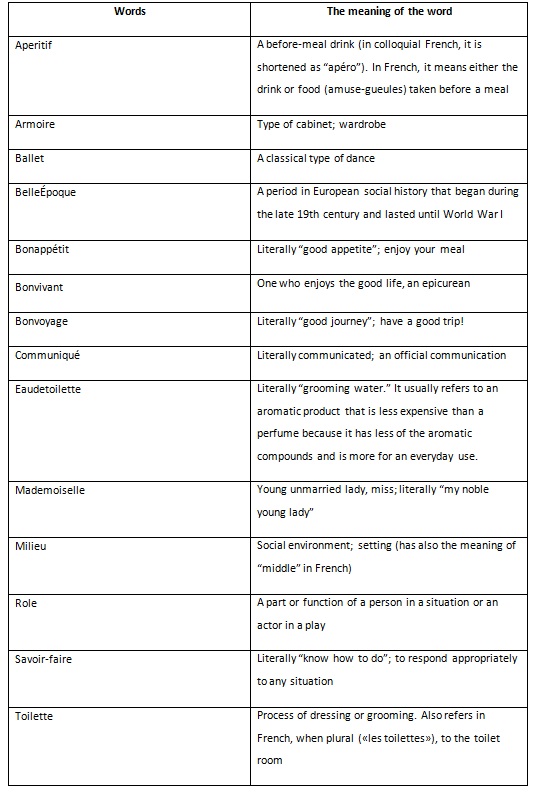Лазаренко В.В., Однорог Л.С. French borrowings in modern English
Матеріал з PSYH.KIEV.UA -- Вісник психології і соціальної педагогіки
Лазаренко В.В. – студентка Педагогічного інституту Київського університету імені Бориса Грінченка, спеціальність «Дошкільна освіта», кафедра іноземних мов і методик їх навчання Київського університету імені Бориса Грінченка
Однорог Л.С. – студентка Педагогічного інституту Київського університету імені Бориса Грінченка, спеціальність «Дошкільна освіта», кафедра іноземних мов і методик їх навчання Київського університету імені Бориса Грінченка
Анотація: У статті досліджено важливість поглибленого вивчення запозичень з однієї мови в іншу. Авторами досліджено слова та словосполучення французького походження в англійській мові. Наведено приклади запозичень з французької мови в англійську і навпаки, та класифікацію за частинами мови, за способом утворення та тематикою.
Ключові слова: лексичні одиниці, англійська мова, французька мова, запозичення, суфікси, префікси, вимова.
Аннотация: В статье изучено важность углубленного изучения заимствований с одного языка на другой. Авторами исследовано слова и словосочетания французского происхождения в английском языке. Приведены примеры заимствований из французского языка в английский и наоборот, разработано классификацию по частям речи, по способу образования и тематике.
Ключевые слова: лексические единицы, английский язык, французский язык, заимствования, суффиксы, приставки, произношение.
Annotation: The article shows the importance of a comprehensive study of borrowings from one language to another. The authors research the words and phrases of French origin in English. Examples of borrowings from French into English are given and vice versa, and are classified according to the parts of the language and by the way of foration and subject matter.
Key words: vocabulary units, borrowing, French borrowing, suffixes, prefixes, pronunciation
Зміст |
Problem setting
The problem of linguistic contacts is one of the central problems of modern linguistics. Languages and dialects live and develop in a continuous and close interaction that affects all aspects and levels of interacting languages. The complexity of speech processes in a particular society is not a reflection of the internal organization of a single homogeneous system, but it can be understood in terms of relations between several systems that are quantitatively different from one another. The natural state of speech is a change, not stability. Not an exception the English language, which has not always been, as it is today. The English language evolved at different stages of its history. One of these stages of the formation of language influenced the French vocabulary.
Analysis of recent achievements and publications
Issues of the introduction of foreign language vocabulary into the language system were studied by many Ukrainian and foreign scientists, such as V. Arakin, I. Arnold, A. Bo, G. Bradley, L. Borisova, C. Brunner, O. Esperen, N Grabovsky, A. Gorshkov, I. Ivanova, L. Krisin, J. McNeight, T. Rastorgueva, A Smirnitsky.
The study of the process and the results of lexical borrowing in the last decades are conducted in two main directions: some linguists have focused their attention on the internal linguistic aspects of the entry of foreign language elements in the languages of borrowing: M.Amosova, L. Chrisin A. Ivanov, L. Sorokin, others consider borrowing in the context of bilingualism and inter-system borrowing of languages: T. Ilyashenko, V.Rosenzweig.
The objective of the article
In our research, we try to comment on the influence of the French language on modern English vocabulary, to identify the features and effects of borrowing from French into English; give examples of borrowings from the French language; to show their excellent and articulating features; to help students overcome the difficulties of borrowed French words in the English language while learning English.
The statement of the fundamental material
The history of the French language in English began in 1066 after the conquest of England by the Normans, led by the Duke of Normandy Wilhelm. It was then that the language of the nobility was French, and commoners – English. For these three centuries (XI-XIV) these two languages competed with each other [6].The Frenchman was clearly dominant, introducing into English all new and new vocabulary. His prevalence in the circles of the aristocracy determined the topic of borrowing. Thus, the greatest number of them is connected with military affairs, trade, science, art, etc. In the table you will see the most commonly used words that came from English from French [3].
It is important that the difference in the names of animals and the meat they give is due to the Norman Conquest and the same way of life that existed in England in the 11th-14th centuries. So, English peasants called their animals primordially English words (cow – cow, pig – pig, sheep – sheep, calf – calf), but when they came to the market to sell their products, they used French words (beef – beef, pork – pork , mutton – lamb, veal – veal) to facilitate the process of trade and communication with high-ranking buyers or their representatives [4].
The English language is also full of French suffixes. Below are the suffixes that will help you identify French words in English. The table includes nouns suffixes [2].
The table includes adjective suffixes.
In addition to suffixes, prefixes of French origin are also very productive:
These are nouns formation.
As we see, many French words are already so ingrained in the English language that when we pronounce them we do not feel their origin, they seem to us quite English (for example, a village). Others, on the contrary, speak for themselves (for example, entrepreneur). But not only individual words came to English, but whole expressions. By the way, many of them are also present in our language for the same reason - they simply did not find a "worthy", "refined" translation: déjà vu, tete-a-tete , carte blanche, haute couture, etc.
But, no matter how elegantly French expressions sound in English speech, everything must be looked for the golden mean. Excessive use of such expressions can create both a high-flown and comic effect [1].
So you think you can’t speak French and it’s going to be really hard to learn? It is estimated that around 70% of the words used in the English language are the same or very similar to the French equivalent words [5]. The problem is more in the pronunciation but here are just a very few of the most commonly used words on both sides which we hope you’ll find useful:
Conclusion and the prospects of the above research
Learning English is impossible without learning vocabulary, which includes a great number of different words of various origin. So, deep knowledge of borrowed words can really make the learning process easier and more interesting and the French borrowings classifications given above can improve students’ foreign language skills.
References
- Арнольд И. В. Основы научных исследований в лингвистике: Учебное пособие / И. В. Арнольд – М., 1991.
- Амосова Н. Н. Этимологические основы словарного состава современного английского языка./ Н. Н. Амосова– М: Изд-во лит-ры на ин. яз., 1956.
- Аракин В. Д. История английского языка: учебник./ В. Д. Аракин – М.: Физматлит, 2003.
- Борисова Л. М. Из истории английских слов: книга для учащихся старших классов./ Л. М. Борисова – М.: Просвещение, 1994.
- Иванова И. П. История английского языка: учебник, хрестоматия, словарь. 4-е изд., испр./ И. П. Иванова, Л. П. Чахоян, Т. Беляева – М – СПб.: Авалон; Азбука, 2010.
- Denison D. Hogg R. (eds.), A history of the English Language / David Denison and Richard Hogg – Cambridge: Cambridge University Press, 2006.




